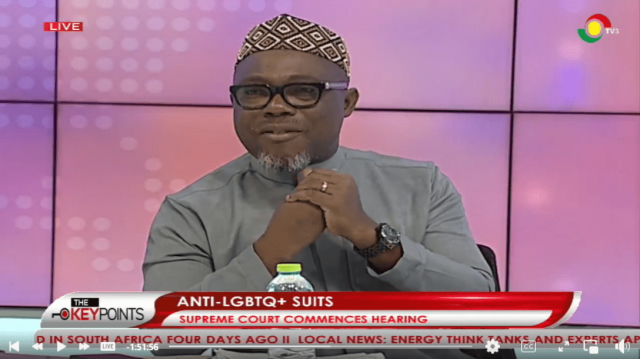The youth must be told plainly that given the challenges that lie ahead as a people, it would have to be tough before it becomes easier, a Professor at the University of Ghana, Ransford Gyampo has said.
Prof Gyampo says he is worried about the creation of the impression that there are solutions to all the problems of the youth.
If not managed well, he said, this may create more disappointments.
Around this time, he said, every cohort in the voting population would want to hear something about what can be done to help them.
“But realistically, it would take a lot of strenuous effort to properly rebuild what has been destroyed and regain what is lost. In this regard, young people must be made to know quite frankly that, given the challenges that lie ahead of us as a people, it would have to be tough before it becomes easier.
“We would all have to tighten our belts a little more, from whoever heads the country to the lowest rated citizen. From the topmost politician to the party footsoldier, all must brace themselves to endure a little more suffering, after which things would begin to ease up,” he said while reacting to the launch of the NDC Youth Manfuefsto in Accra on Monday, August 12.
The NDC youth manifesto has promised among others that there will be no fees for level 100 students in all the public universities under a Mahama administration.
Below is his full statement…
Politics in Ghana, has essentially been politics of the youth. Apart from the Kufuor regime that was understandably gerontocratic, relatively younger people have generally been dominant in everything governance, politics and leadership in Ghana. Therefore any deliberate effort to dialogue with them before an election via the decent platform of Town Hall, is commendable, as it would help erase the derogatory perception of young people as immature, danger to themselves and agents used to foment conflict. This would in turn seize them with the information with which they can demand accountability from governments.
The age cohort of 18 to 35 years is almost 70 percent of Ghana’s voting population. Any serious effort at winning an election must therefore target the youth for the purposes of engaging them in a civil dialogue on matters germane to their welfare and what can be done about them. Virtually all the problems confronting Ghana would be solved if the problems of young people are clearly articulated, properly grasped and addressed.
The worry however is about the creation of impression that there are solutions to all the problems of the youth. This, if not managed well, may create more disappointments. Around this time, every cohort in the voting population would want to hear something about what can be done to help them. But realistically, it would take a lot of strenuous effort to properly rebuild what has been destroyed and regain what is lost. In this regard, young people must be made to know quite frankly that, given the challenges that lie ahead of us as a people, it would have to be tough before it becomes easier. We would all have to tighten our belts a little more, from whoever heads the country to the lowest rated citizen. From the topmost politician to the party footsoldier, all must brace themselves to endure a little more suffering, after which things would begin to ease up.
This should be the message to the youth. Jerry Rawlings in his second bid to win power in the 1996 General Elections, articulated this type of message cleverly and in a manner that should be emulated. He said he won’t promise anyone anything and that all he could promise was hardwork which would in turn pay off to meet the needs of all.
I therefore urge all to be measured in the expectations they create, even if it is still true that “y3 te sika so, nanso 3k)m de y3n”, in order to avoid further disappointments that can threaten the very survival of our democracy and peace.
Yaw Gyampo
A31, Prabiw
PAV Ansah Street
Saltpond
&
Suro Nipa House
Behind Old Post Office
Larteh-Akuapim
















